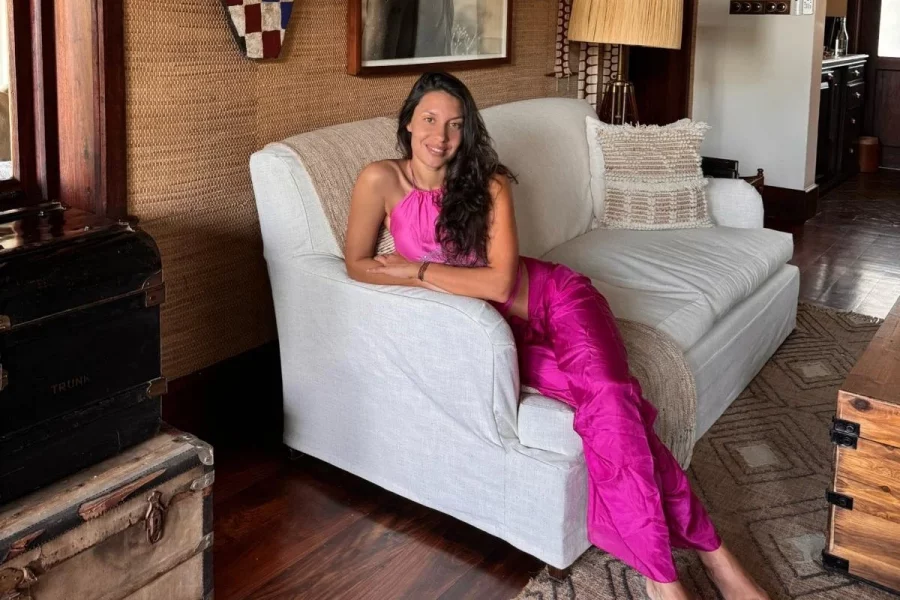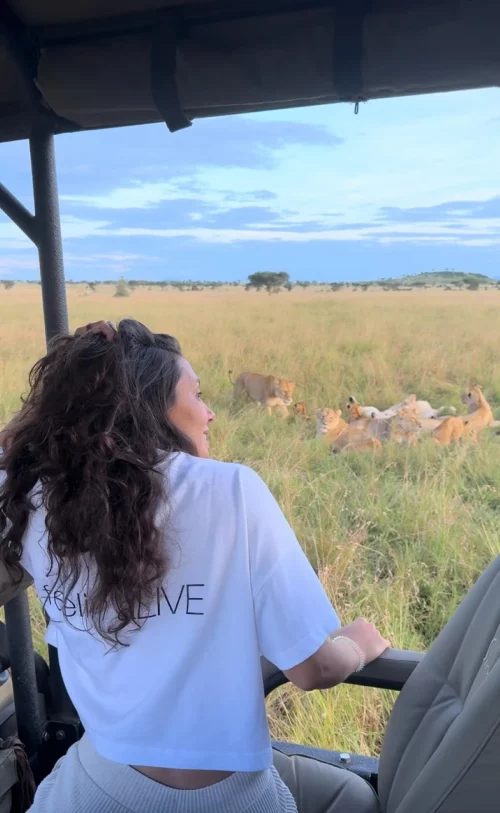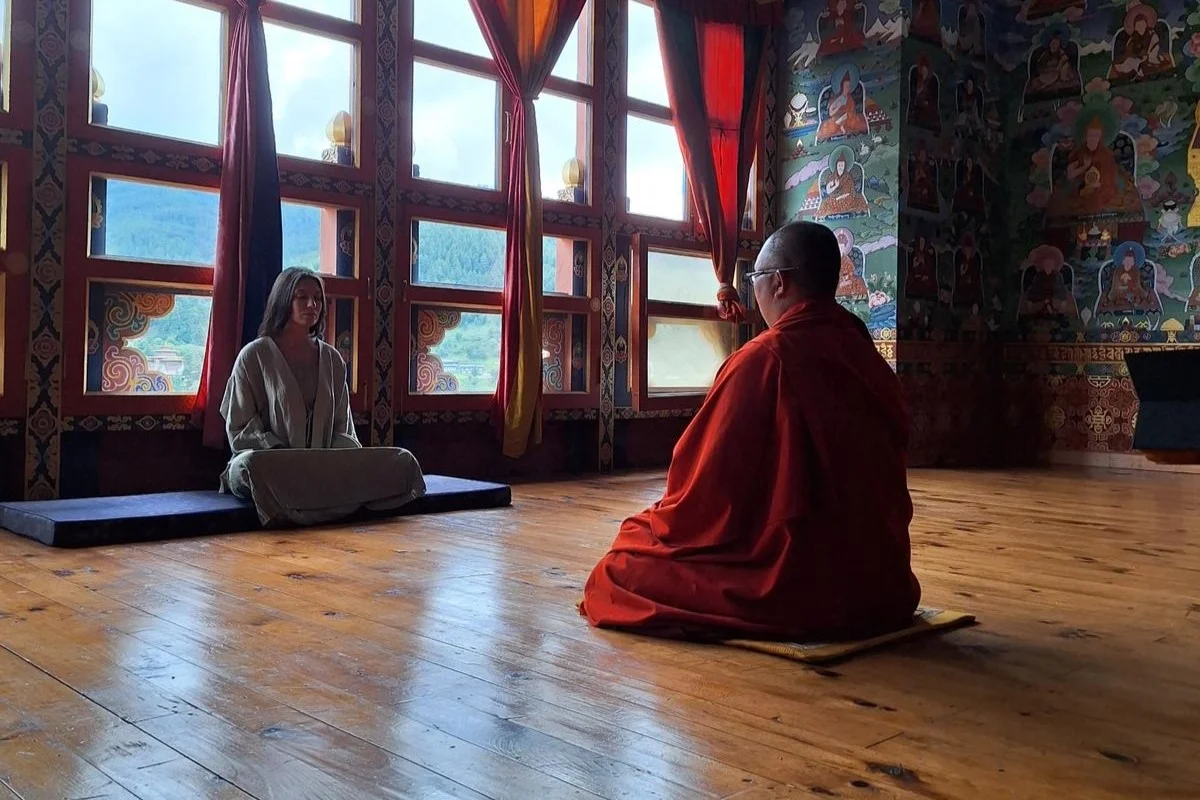Experiential travel, a balance of authentic experiences and unique adventures that blends sustainability, cultural respect and exploration, has gained traction over the years. To learn more about a trend that looks like it is here to stay, Monaco Life got some industry insights from Ioana Rucareanu, the founder of experiential travel company aLive.
Founded by 29-year-old Ioana Rucareanu from Bucharest, the concept of the Monaco-based company aLive is centered around an innovative approach to luxury travel based on the ideals of immersive and authentic experiences that go beyond traditional tourism.
“My core passion has always been travelling as it encompasses everything, from culture to adventure to conservation,” Ioana Rucareanu tells Monaco Life.

Stemming from Rucareanu’s background in the luxury sector, her educational experience at the International University of Monaco (IUM) and a personal quest for authenticity, aLive curates journeys that blend exploration with cultural immersion, catering to a traveller seeking intellectual and sensory stimulation.
“No matter the journey, it is still personal and subjective, so this is where experiential travelling clicked for me. It is an opportunity to tap into every person’s unique dreams and desires and bring personal visions to life,” she explains.

Redefining travel through unique journeys
Unlike standard travel agencies, experiential travelling offers diverse experiences tailored to the adventurous individual.
“Travel agencies offer ready-made activities or tour operators’ packages, which is great, but it really takes away that sort of off-the-beaten-path edge,” she says.
Alternatively, aLive proposes experiences that are immersive, ranging from adrenaline-pumping supercar adventures traversing scenic mountain passes and historic city streets to intimate wildlife encounters in private reserves in far-flung places such as the Serengeti and Lapland.
“I’ve realised that in traditional travel, we are basically replicating the same experience in different forms, and we are losing the authenticity of the culture,” says Rucareanu. “To me, travel in a nutshell is all about experiences that make you feel alive in authentic places.”
Rucareanu’s approach in experiential travel goes beyond exclusively working with the travel industry’s ‘traditional players’, a group she sees as including agencies, destination management companies and tour operators. Instead, aLIVE collaborates with players from different fields: film production companies, conservationists, private owners and even government officials at times. These entities, she says, have permissions to access certain restricted or privatised lands in specific locations, opening doors to unparalleled experiences or, as Rucareanu put it, off-the-beaten-path experiences.
“This kind of network to experience the world goes beyond the typical travel… Exploring the world without boundaries, to live that moment, but still with respect to the culture,” says Rucareanu.
“Disconnect to reconnect”
After an immersive escape, says Rucareanu, individuals return to real life with a sense of regeneration that allows them to better carry out daily tasks and improve their performance in work or school.
“You disconnect to reconnect,” says Rucareanu. “Our generation’s stress levels are so high, and stress is related to not being in the present, so these kinds of experiences provide an escape from our mind and problems. When you come back, you are rested not only physically but also mentally.”
According to the Stress in America 2020 Survey by the American Psychological Association (APA), Generation Z is the most stressed generation.
“We end up going on vacation with our thoughts, with our problems… Stress comes from living in the past or being anxious about the future, making us not present in the moment,” she says.
Challenges in the industry
While online searches and websites like booking.com and Airbnb have significantly reduced the need to rely on travel agencies, Rucareanu says experiential travel challenges the idea that the Internet is all you need to organise travel. Since experiential travel revolves around intimate and out-of-your-comfort-zone experiences, trust and safety are integral aspects.
“This is why, with experiential travel, you have to know your connections personally so that you and your clients will be taken care of as a local,” she explains.
According to the young businesswoman, experiential travel also avoids contributing to the kind of over-tourism that has forced Venice to introduce a €5 entrance fee per tourist, a 20,000 per day limit on visitors to the Acropolis in Greece, and strict quotas in Peru that reduce visiting hours at Machu Picchu.
In contrast, experiential travel involves small tourist groups and privatised tours that, says Rucareanu, help to balance sustainability, respect for culture and exploration.
“We propose bespoke high-end experiences that are private and tailored to you. This often means remote or less-experienced destinations for a more authentic feel of the culture.”
Connection to the world
Additionally, experiential travel can provide meaningful connections through conservation initiatives. Travellers can actively participate in and support various conservation projects around the world, from hands-on experiences in wildlife reserves to educational quests alongside local conservationists and charity organisations.
“It’s not just about giving back to the world via a cheque, but by really getting involved personally,” Rucareanu tells Monaco Life. “With access to significant projects around the world through our extensive network of conservationists, aLive presents the opportunity to have a close-up look and be actively involved. The more immersed you are, the more you live it, the more you learn, and by default, you are more connected to our world and connected within.”
Monaco Life is produced by real multi-media journalists writing original content. See more in our free newsletter, follow our Podcasts on Spotify, and check us out on Threads, Facebook, Instagram, LinkedIn and Tik Tok.
Photo supplied
